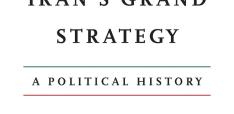Universal Declaration of Human Rights at 70: Our government might not organise a party, but the rest of us should

The worldview that the Universal Declaration of Human Rights promotes is the polar opposite of the one actually gaining traction today, writes Francesca Klug. She argues that the Declaration was written for a precise moment like now, when lessons learnt from genocide and war are replaced by national pride and international indifference.
When the state chooses to remember some significant anniversaries, and not others, what does that signify? The centenary marking the beginning of women’s suffrage has just been honoured and three years ago the government was even more rapturous about the 800th anniversary of the Magna Carta. Disregarded in those celebrations was the unsurprising absence from this Medieval charter of almost all human rights we consider fundamental today; from freedom of conscience and expression to prohibitions on slavery and discrimination.
It was the 1948 Universal Declaration of Human Rights (UDHR) which ushered in our modern human rights framework and established a set of minimum, common standards for all human beings everywhere. This is surely something to celebrate, but on current form there will be no state knees-up to mark the UDHR’s landmark 70th birthday on 10 December.
Commemorations of the Representation of the People Act and the Magna Carta provided an opportunity for national self-congratulation; reinforcing the ‘Whig view’ of British history as an inexorable progression towards greater liberty and enlightenment. But if you share the view of ardent Brexiteer Daniel Hannan MEP, for example, that “we invented freedom,” (as he claimed in his 2013 book) then international law is a form of “supernationalism,” leading to “the abandonment” of “state sovereignty.”
Every word of the UDHR’s title appears to prove his point: universal smacks of cosmopolitanism; declaration sounds dangerously vague and foreign; why human, not citizen and regarding rights…didn’t Britain invent them?
But every one of those terms was carefully chosen by the mosaic of UN delegates who were tasked with crafting a declaration for “all peoples and all nations,” precisely because the weaponising of national sovereignty had brought the world to the brink of catastrophe. As even democracies had crumbled into ethno-nationalist tyrannies, governments voluntarily agreed to establish a system of accountability to a higher set of norms and institutions to moderate national sovereignty and majority rule when necessary.
The “barbarous acts which have outraged the conscience of mankind,” referenced in the UDHR’s Preamble, drove the campaign for an international bill of rights championed by multiple NGOs, some of whom were bitterly disappointed when a Declaration, rather than a legally binding treaty, was produced. Their fears proved unwarranted when the Declaration procreated a plethora of human rights treaties which are legally binding, all of which recognise their UDHR parentage in their Preamble, including the European Convention on Human Rights (reflected in British law through the Human Rights Act).
But the chief goal of the drafters, led by Eleanor Roosevelt, was to craft ‘a big idea;’ an ethical vision for a good society and a better world to shape the new era they believed was dawning. Looking to a future based on “social progress and better standards of life,” economic, social and cultural rights were given equal status to civil and political ones, recognising that freedom without the economic wherewithal to live a dignified life is no freedom at all.
Persuading virtually every state at the time (only eight abstained) to sign up to these principles for human dignity and global peace – if only as a standard by which to judge everyone else – was undoubtedly a watershed moment. Whilst claims to universality were undermined by the absence of representation from sub-Saharan African states, still subject to Western imperial rule, it is a category error to view the UDHR as simply an extension of the famous Enlightenment charters of rights, repackaged for world export. In reality, the UDHR drafters set themselves the task of facing up to the failure of ‘enlightenment values’ to eliminate slavery, emancipate women and prevent the persecution- and ultimately mass murder of those who didn’t fit a perverted European norm because they were black, disabled, gay, Jewish, Roma, or just ‘other’ .
There are many ways of characterizing the UDHR, but a simple one is that its worldview was the polar opposite of the one gaining traction today. As we are again confronted with ‘strongmen’ and leaders all over the globe who thrive on divisions, it is striking how virtually every UDHR Article begins with the word ‘everyone.’
Instead of ‘make America or Britain or wherever great again’ – a perfectly imaginable response at the end of WW2 – the Declaration promoted co-operation between states and “an international order” in which human rights can be realised. Instead of a discourse about ‘taking back control’ from transnational bodies, the Declaration called time on nation states only policing themselves. ‘Higher norms,’ protected by the UN, were deemed necessary, above all, to prevent states from extinguishing the rights of minorities on the basis of the ‘will of the majority.’ Instead of asserting, that “If you believe you’re a citizen of the world, you’re a citizen of nowhere,” (that was our Prime Minister in 2016) the essence of the UDHR was to stress that we are “all members of the human family,” as the very first sentence of the Preamble puts it, and that when the chips are down, and life and liberty are at stake, humanity should always trump nationality.
All of us take for granted that these norms play some part in our world now, but just 70 years ago there were no internationally recognised human rights standards to cite in political struggles, let alone international human rights courts where individuals could hold their own governments to account. There was, in fact, virtually no legal basis for one state interfering with another in the treatment of its own citizens or residents at all. None of these developments came out of an intellectual endeavour. All came after prolonged suffering, struggles and negotiations, often including the people most affected.
Yet there has never been a time since 1948 when states that once claimed to champion the UDHR have so fiercely articulated a worldview, and mindset, which directly or indirectly undermines its basic value system. If ‘the new nationalism’ gaining strength across Europe, America and elsewhere is partly a reflection of the popular backlash against the grotesque inequalities and marginalisation of communities ‘left behind’ by globalisation, then those of us who champion universal human rights also need to take some responsibility.
More persuasive arguments are needed to respond to the denunciation of universal human rights as a modern incarnation of the trope of ‘rootless cosmopolitanism,’ than resorting to the obligation on states to comply with international law. For whilst the legal manifestation of human rights gives them teeth, providing a lifeline to those whose governments oppress rather than protect them, it can also obscure their purpose and meaning.
The UDHR drafters knew that its future depended, not on states or even courts, but on the human beings to whom it is chiefly addressed. It was not written for the past, for that was already over and could not be undone. It was written for a precise moment like now when forgetfulness returns, as the drafters knew it surely would, and lessons learnt from genocide and war are replaced by a new narrowing of the horizon, as national pride and international indifference re-emerge in fresh forms.
So if the government won’t organise a party for the UDHR’s 70th birthday, maybe the rest of us should?
Francesca Klug OBE is a Visiting Professor at LSE Human Rights. She was Director of the Human Rights Futures Project at the LSE Centre for the Study of Human Rights from 2001-2015, which is now housed at the British Institute of Human Rights, and was also a member of the Advisory Board of LSE’s Centre for Analysis of Social Exclusion. Her most recent book, A Magna Carta for all Humanity, homing in on human rights, was published by Routledge in 2015.
This post first appeared on the LSE's British Policy and Politics blog.
Image credit: United States Mission Geneva via Flickr (CC BY-ND 2.0)

